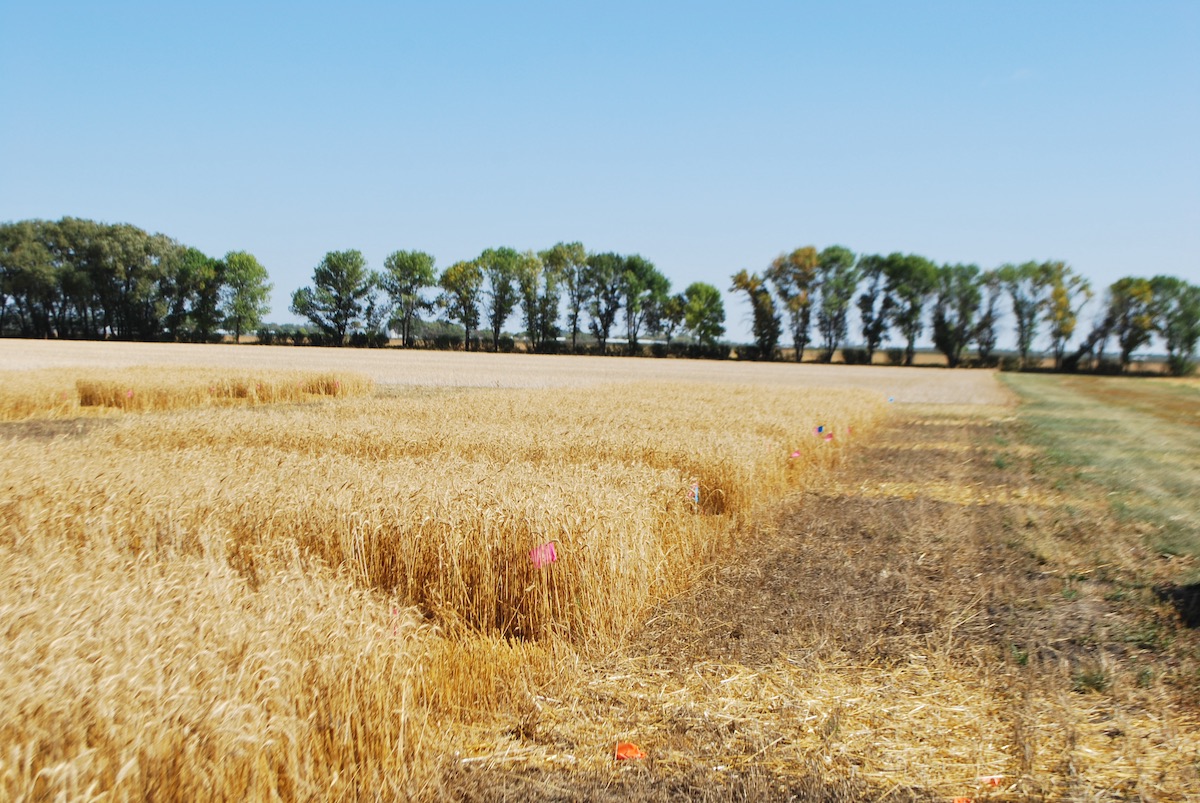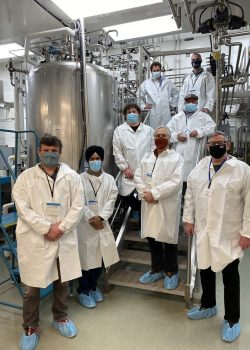
Homegrown solution for farmers looking to increase yields
UM researchers and KGS Group partner on development of bio-inoculant strains to help farmers tackle current challenges
The effects of climate change, coupled with the rising costs of land, machinery, fuel, pesticides and fertilizers, have agricultural producers looking for alternative, innovative solutions to increase yields. Bio-inoculants, natural micro-organisms applied to soil or plants to improve soil health, may be one such solution. KGS Group and UM researchers, including Dr. John Sorensen (Chemistry), Dr. Rob Gulden (Plant Sciences) and Dr. Richard Sparling (Microbiology), have developed two bio-inoculant strains, KGS-2 and KGS-3, to help farmers tackle the many challenges they face today in an environmentally friendly way.
KGS-2 and KGS-3 are naturally occurring organisms isolated from Manitoba soils that help plants access phosphorus. “Phosphorus is an essential nutrient for plant growth and both KGS-2 and KGS-3 are very effective at harnessing its power,” said Stan Lozecznik, a Senior Environmental Engineer at KGS Group. The use of KGS-2 significantly increased the yield in crop trials within Saskatchewan and Manitoba and has the potential to do the same in other crops. KGS-3 is also a bio-fungicide, as well as growth promoter, with demonstrated ability to reduce various crop diseases.

Bio-inoculants group in Spring 2021 in the BioScision Fermentation Facility
Top row: Dr. John Sorensen (Chemistry, UM), Dr. Rob Gulden (Plant Sciences, UM) Middle row: Dr. Scott Wushke (Microbiologist, post-doctoral fellow, UM), Dr. Vikram Bisht (MB Dept. of Agriculture and Resource Development – Industry Development Specialist – Potato and Horticulture Crops Pathology) Bottom row: Dr. Stan Lozecznik, Senior Environmental Engineer, KGS Group, Tajinder Kainth (Microbiology, 2021 research assistant, UM), Dr. Richard Sparling (Microbiology, UM), J. Bert Smith, Principal at KGS Group
Missing: Dr. April Johnson (Chemistry, post-doctoral fellow, UM)
Unlike traditional chemicals used to stimulate plant growth and decrease diseases, bio-inoculants can be easily produced with substantial safety and environmental benefits. “The underlying technology is identical to that used for other large-scale fermentations such as beer making,” said Dr. John Sorensen, Dept. of Chemistry, UM. “The fact that bacterial growth can be accomplished in water with common, safe ingredients is a major improvement in safety and virtually eliminates the environmental risks that can be associated with the production of chemical plant stimulants and fungicides,” explained Dr. Richard Sparling, Dept. of Microbiology, University of Manitoba.
Microbial agriculture is an emerging field garnering a lot of interest around the world and now this home-grown solution is primed to expand locally. In spring of 2021, KGS and UM researchers partnered with local biotechnology company BioScision Pharma Inc. to produce the large quantities of KGS-3 needed for a series of field trials in Manitoba and Saskatchewan. Dr. Rob Gulden, Dept. of Plant Sciences, University of Manitoba, notes the significance of these locally developed products: “For Prairie producers, it’s a great benefit that these products have been developed and tested in Manitoba and Saskatchewan, and therefore are ideally suited to our unique geography and climate.”
The two bio-inoculant strains (KGS-2 and KGS-3) are patented in Canada and the US and are available for licensing.
KGS Group is interested in developing relationships with agriculture companies who wish to partner in the commercialization of these technologies.
This project received funding from agencies including NSERC, MITACS, NRC-IRAP, and the Research Manitoba Innovation Proof-of-Concept program. This project has also greatly benefitted from the support of Dr. Vikram Bisht, an Industry Development Specialist, with expertise in potato and horticulture crops pathology, for the Manitoba Dept. of Agriculture and Resource Development.
Research at the University of Manitoba is partially supported by funding from the Government of Canada Research Support Fund.






